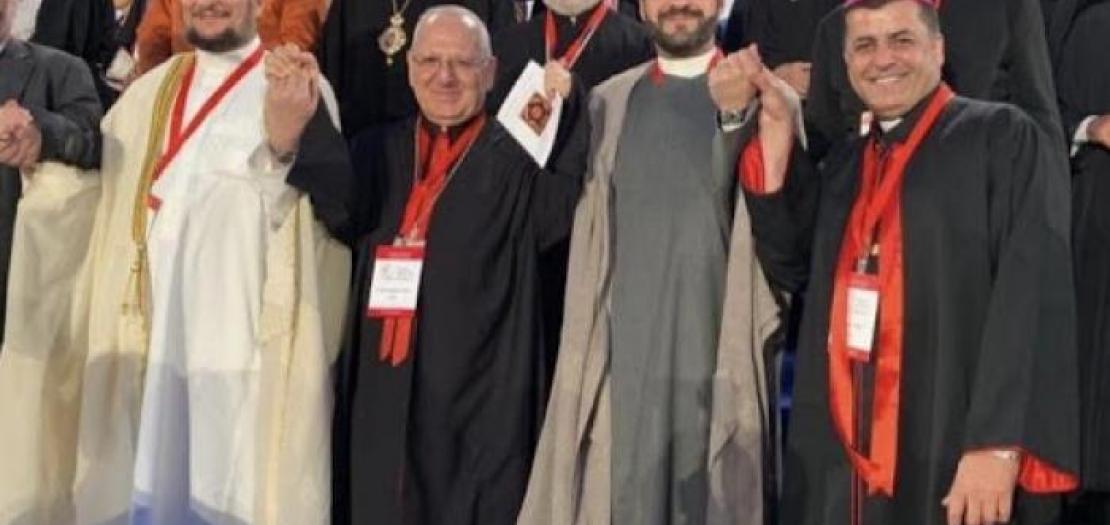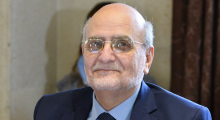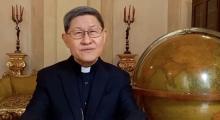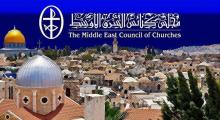Issued by the Catholic Center for Studies and Media - Jordan. Editor-in-chief Fr. Rif'at Bader - موقع أبونا abouna.org

A "secular, strong and democratic state" that positions itself "at the same distance from everyone, as civilized as others in the world". This is what the Chaldean primate, Cardinal Louis Raphael Sako writes in a message posted on the patriarchate's website and sent to AsiaNews in which he raises a "patriotic and heartfelt appeal as we approach the elections". The cardinal recalls "tensions, instability and unknowns" that weigh on the future of the nation at a political, social, cultural and economic level that require "an awakening of conscience and awareness" of belonging to a "community".
The reflections of the Chaldean patriarch come one month after the historic visit of Pope Francis to Iraq and in view of the parliamentary elections, scheduled for next October 10, if no further postponements occur, given that at first they were to be held in June. With the vote, the 328 members of the House of Representatives will be chosen, who will then be called to indicate the future President of the Republic and the Prime Minister, with the new government.
As an Iraqi citizen, explains the Cardinal, "I have lived for decades" with violence, devastation, crises that have swept through the "homeland [which represents] the unifying identity", capable of embracing and protecting "diversity". He says this proposal is "consistent" with the indications of the Shiite leader, the great Ayatollah Ali al-Sistani, with the reference to the time of Medina where a neutral society was in force, one that was respectful of the independence of the religious sphere and not in conflict with it. On the contrary, religious leadership becomes an element capable of "providing advice and guidance" to the homeland.
“The basis of the civil state - underlines the cardinal - is to guarantee the equal rights and duties of all citizens and provide them with a dignified life. It is not true that the secular system is opposed to religion; on the contrary, the civil system does not deprive people of the right to practice their faith according to personal conviction and, at the same time, it does not oblige them to profess a religion ”.
"A civil state - he continues - embraces all religions, cultures, groups and languages, administers public affairs fairly and protects against dangers". It "does not interfere with the religious choices of its citizens, nor does it base its policy on a certain dogmatic ideology that it creates to obtain power and hegemony", as was the case in medieval Christianity and, today, in the various currents of "political Islam". In both "deplorable" cases, the goal "is power, not service to man" according to the inviolable principle of "freedom of conscience, according to which a citizen can be Christian, Muslim or of another religion."
Faith establishes "a living and vertical relationship" with God and "unites human beings". His "holiness" must be "respected, not politicized or distorted". The hope, concludes the cardinal, is that the political framework in view of the vote "goes towards joining the civil order, not sectarianism, in line with the appeal of the supreme Shiite authority, the great Ayatollah Ali al-Sistani , in order to give new life to the country."







